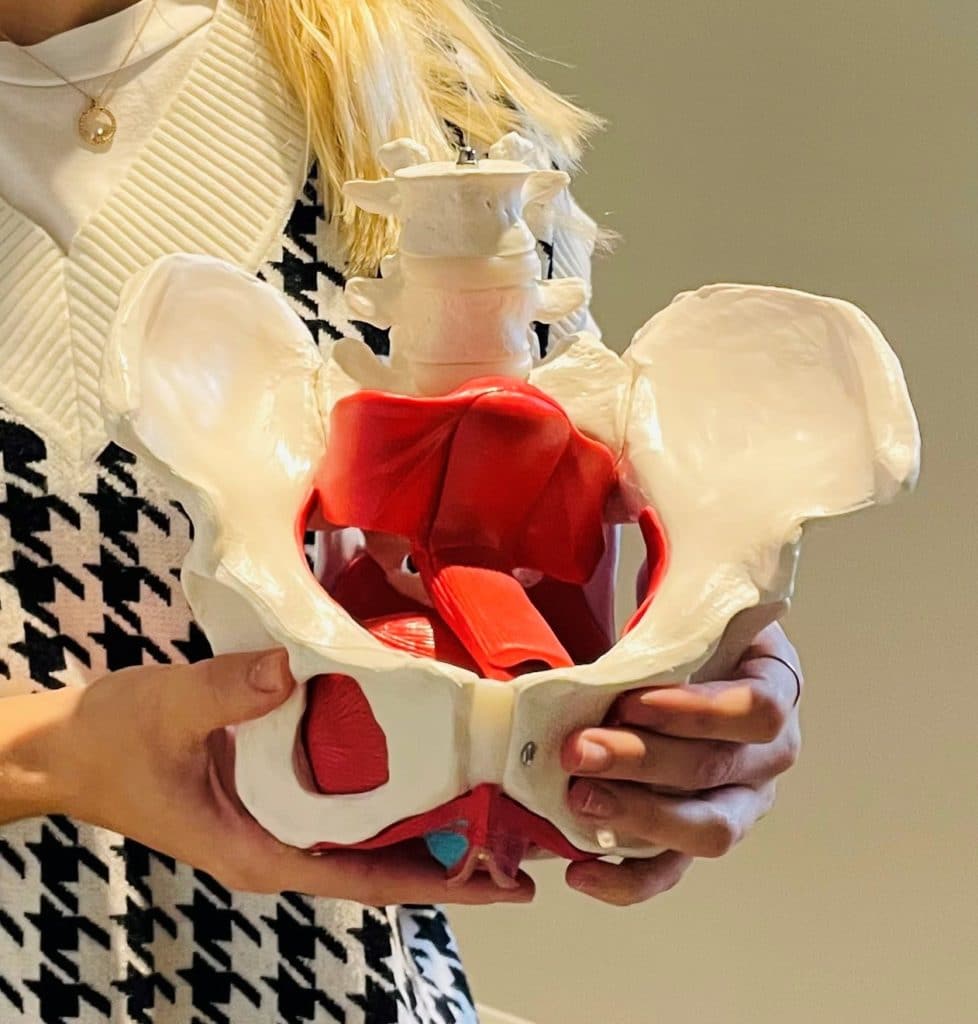Is Pelvic Floor Physiotherapy Right For You?
Pelvic floor muscles are one of the most important groups of muscles in our body, and one of the most forgotten muscles. We tend to not think about them until they start presenting problems. At that point, we find ourselves glued to google, trying to find answers for what we are experiencing.
Where is my pelvic floor?

Your pelvic floor is a group of muscles that sit within your pelvis and act like a hammock to support organs such as your bladder, rectum, uterus, and prostate. These muscles stretch from your pubic bone straight back to your tailbone. These muscles help with the function of your bladder and bowels, with sexual health, core stability and lymphatic drainage.
What exactly is Pelvic Floor Therapy?
Pelvic floor physiotherapy is a specialized branch of physiotherapy that focuses on conditions that affect the pelvic floor muscles, pelvic organs, the low back, hips and more. Pelvic floor physiotherapists can treat womxn, men, and in some cases children. We are physiotherapists that have taken additional training to be certified to perform internal examinations of the pelvic floor to be able to treat pelvic conditions.
Common conditions that Pelvic Floor Physiotherapist treat are:
- Incontinence – difficulty controlling bladder or bowels
- Prenatal and Postpartum Rehabilitation
- Interstitial Cystitis
- Bladder Pain Syndrome
- Irritable Bowel Syndrome
- Hesitation/Dyssynergia
- Dyspareunia
- Pre- or Post Prostatectomy
- Pre- or Post Surgical Consultations
- Endometriosis
- Pelvic Organ Prolapse
- Vulvodynia
What to expect at your pelvic floor assessment?
On your first visit, your pelvic physiotherapist will go through a comprehensive examination that includes a thorough history and orthopedic and neurological examination to diagnose your condition or complaint. Sometimes an internal examination is recommended to look specifically at the pelvic floor muscles and pelvic organs. If that doesn’t sound like it’s for you, no worries, you can still get many great benefits from seeing a pelvic floor physiotherapist!
